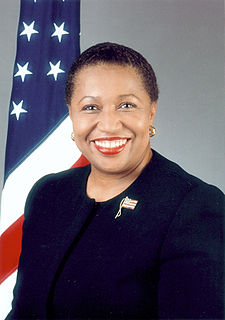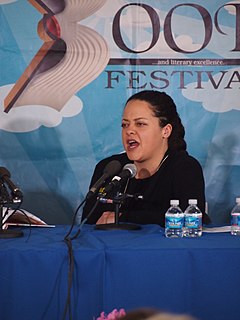A Quote by Carol Moseley Braun
I think the legacy of the civil rights movement is that now whites are more open to being represented by people of color or people who are women or, again, non-traditional candidates.
Related Quotes
Because of the Civil Rights movement, new doors of opportunity and education swung open for everybody ... Not just for blacks and whites, but also women and Latinos; and Asians and Native Americans; and gay Americans and Americans with a disability. They swung open for you, and they swung open for me. And that's why I'm standing here today-because of those efforts, because of that legacy.
In less than a century we experienced great movement. The youth movement! The labor movement! The civil rights movement! The peace movement! The solidarity movement! The women's movement! The disability movement! The disarmament movement! The gay rights movement! The environmental movement! Movement! Transformation! Is there any reason to believe we are done?
For many years now, I have been an outspoken supporter of civil and human rights for gay and lesbian people. Gays and lesbians stood up for civil rights in Montgomery, Selma, in Albany, Ga. and St. Augustine, Fla., and many other campaigns of the Civil Rights Movement. Many of these courageous men and women were fighting for my freedom at a time when they could find few voices for their own, and I salute their contributions.
The great social justice changes in our country have happened when people came together, organized, and took direct action. It is this right that sustains and nurtures our democracy today. The civil rights movement, the labor movement, the women's movement, and the equality movement for our LGBT brothers and sisters are all manifestations of these rights.
That was exciting to be able to comment on civil rights. I mean, the civil rights movement that young people don't know about today, but Martin Luther King was considered by the establishment press in the early years of the sit-in movement as a dangerous man, and he was the equivalent at that time as Malcolm X. And he was told to stop his demonstrations; they were against the law and all of that. Now that he's sainted and sanctified we've forgotten.
You have to join every other movement for the freedom of people. Therefore join the movement as individuals against anti-Semitism, join the movements for the rights of Hispanics, the rights of women, the rights of gays. In other words, I think that each movement has to stand on its own feet because it has a particular agenda, but it can ask other people.
Let me go over this again on the reclaiming the civil rights movement. People of faith that believe that you have an equal right to justice - that is the essence. And if it's not the essence, then we've been sold a pack of lies. The essence is everyone deserves a shot - the content of character, not the color of skin.


































